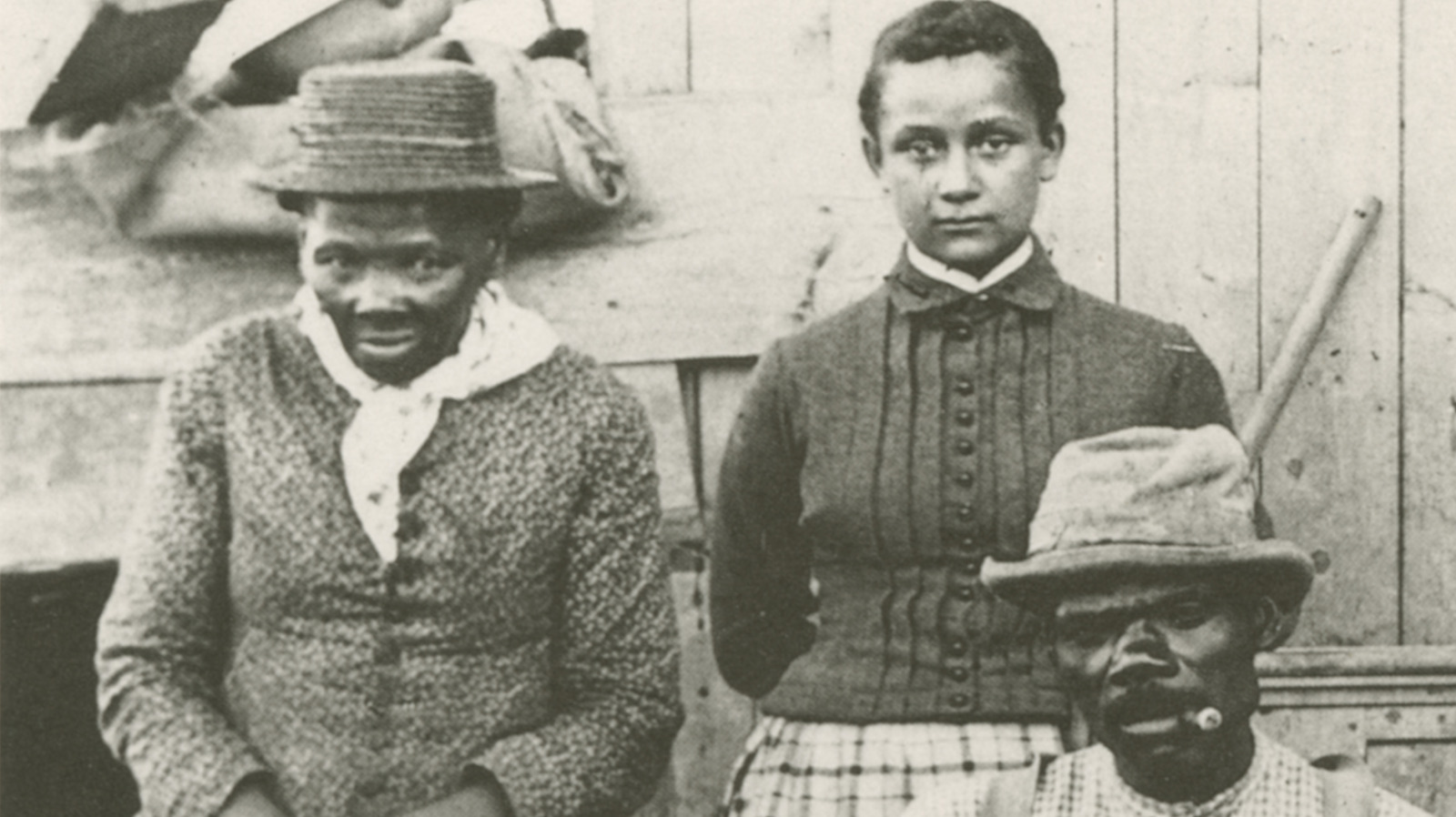
Who was Gertie Davis? Gertie Davis, the adopted daughter of Harriet Tubman, remains a lesser-known figure in history. Born around 1876, Gertie was brought into Tubman's life after the Civil War. Tubman, a legendary abolitionist and former slave, adopted Gertie with her second husband, Nelson Davis. Why is Gertie Davis significant? Gertie's adoption highlights Tubman's compassionate nature and her commitment to family and community. Though not much is documented about Gertie's life, her story adds depth to Tubman's legacy. What can we learn from Gertie Davis? Gertie's life serves as a reminder of the personal sacrifices and acts of kindness that often go unnoticed in the grand narratives of history.
Who Was Gertie Davis?
Gertie Davis is a name that might not ring a bell for many, but her story is intertwined with one of the most iconic figures in American history. Gertie was the adopted daughter of Harriet Tubman, the legendary abolitionist and conductor of the Underground Railroad. Here are some fascinating facts about Gertie Davis that shed light on her life and legacy.
-
Gertie Davis was adopted by Harriet Tubman and her second husband, Nelson Davis, in the late 1860s.
-
She was born around 1874, though the exact date remains uncertain.
-
Gertie was adopted when she was just a baby, making her one of the youngest members of the Tubman household.
-
Harriet Tubman and Nelson Davis had no biological children of their own, which made Gertie's adoption even more significant for the couple.
Life with Harriet Tubman
Living with Harriet Tubman meant that Gertie was raised in an environment filled with stories of bravery, resilience, and the fight for freedom. Here are some insights into her life with Tubman.
-
Gertie grew up in Auburn, New York, where Harriet Tubman had settled after the Civil War.
-
The Tubman household was known for its open doors, often providing shelter to those in need, including former slaves and the elderly.
-
Harriet Tubman was deeply involved in the community, and Gertie often witnessed her mother's activism firsthand.
-
Despite her mother's fame, Gertie led a relatively private life, away from the public eye.
Education and Upbringing
Education was an important aspect of Gertie's upbringing. Harriet Tubman valued learning and ensured that Gertie received a proper education.
-
Gertie attended local schools in Auburn, where she received a basic education.
-
Harriet Tubman believed in the power of education to uplift and empower, a value she instilled in Gertie.
-
Gertie was taught to read and write, skills that were not always accessible to African Americans during that era.
-
The Tubman household emphasized moral values, hard work, and the importance of helping others.
Gertie's Adult Life
As Gertie grew older, she began to carve out her own path, though she always remained connected to her mother's legacy.
-
Gertie married a man named Lee Cheney, with whom she had several children.
-
She continued to live in Auburn, maintaining close ties with her family and community.
-
Gertie was known for her quiet strength and resilience, traits she likely inherited from her mother.
-
She played a role in preserving Harriet Tubman's legacy, sharing stories and memories with her own children and grandchildren.
Legacy and Impact
Though Gertie Davis may not be as well-known as her mother, her life and legacy are still significant. Here are some ways she contributed to her family's enduring impact.
-
Gertie's children and grandchildren carried forward the values and lessons imparted by Harriet Tubman.
-
The Davis family remained active in the Auburn community, continuing the tradition of service and activism.
-
Gertie's life serves as a testament to the enduring influence of Harriet Tubman's legacy on future generations.
-
Her story highlights the importance of family, education, and community in the fight for equality and justice.
Lesser-Known Facts
There are some lesser-known aspects of Gertie Davis's life that add depth to her story. Here are a few intriguing details.
-
Gertie was known to have a close relationship with her adoptive father, Nelson Davis.
-
She often helped her mother with various household and community tasks, learning the importance of hard work.
-
Gertie witnessed the passing of the 13th, 14th, and 15th Amendments, which abolished slavery and granted citizenship and voting rights to African Americans.
-
Despite the challenges of her time, Gertie remained optimistic and hopeful for a better future.
Final Years
Gertie Davis lived a long life, witnessing significant changes in American society. Her final years were marked by reflection and a continued commitment to her family's values.
-
Gertie lived to see the early 20th century, a period of great social and political change.
-
She remained in Auburn, close to the home where she was raised.
-
Gertie continued to share her mother's stories, ensuring that Harriet Tubman's legacy would not be forgotten.
-
Her descendants have continued to honor and preserve the family's history, keeping the memory of Harriet Tubman and Gertie Davis alive.
Remembering Gertie Davis
Gertie Davis may not be a household name, but her life and legacy are worth remembering. Here are some final facts that encapsulate her story.
-
Gertie's life was a testament to the power of love, resilience, and the importance of family.
-
She played a crucial role in preserving the history and legacy of Harriet Tubman.
-
Gertie's descendants continue to honor her memory through various community and educational initiatives.
-
Her story serves as an inspiration to those who value justice, equality, and the power of education.
-
Gertie's life reminds us that even those who live in the shadows of history can have a profound impact on future generations.
-
Her legacy is a testament to the enduring power of Harriet Tubman's fight for freedom and equality.
-
Gertie Davis's story is a vital part of American history, reminding us of the importance of family, education, and community in the ongoing struggle for justice.
Gertie Davis: A Life Remembered
Gertie Davis, the adopted daughter of Harriet Tubman, lived a life that intertwined with one of history's most iconic figures. Her story, though less known, offers a glimpse into the personal side of Tubman's legacy. Gertie's life was marked by the challenges and triumphs of being part of a family dedicated to freedom and justice. Her experiences reflect the broader struggles and resilience of African Americans during her time. By learning about Gertie, we gain a deeper understanding of the human aspects behind historical events. Her life, filled with both hardship and hope, reminds us of the enduring impact of Harriet Tubman's work. Gertie Davis may not be a household name, but her story is a vital piece of the rich tapestry of history. Remembering her helps keep the legacy of courage and determination alive for future generations.
Was this page helpful?
Our commitment to delivering trustworthy and engaging content is at the heart of what we do. Each fact on our site is contributed by real users like you, bringing a wealth of diverse insights and information. To ensure the highest standards of accuracy and reliability, our dedicated editors meticulously review each submission. This process guarantees that the facts we share are not only fascinating but also credible. Trust in our commitment to quality and authenticity as you explore and learn with us.


